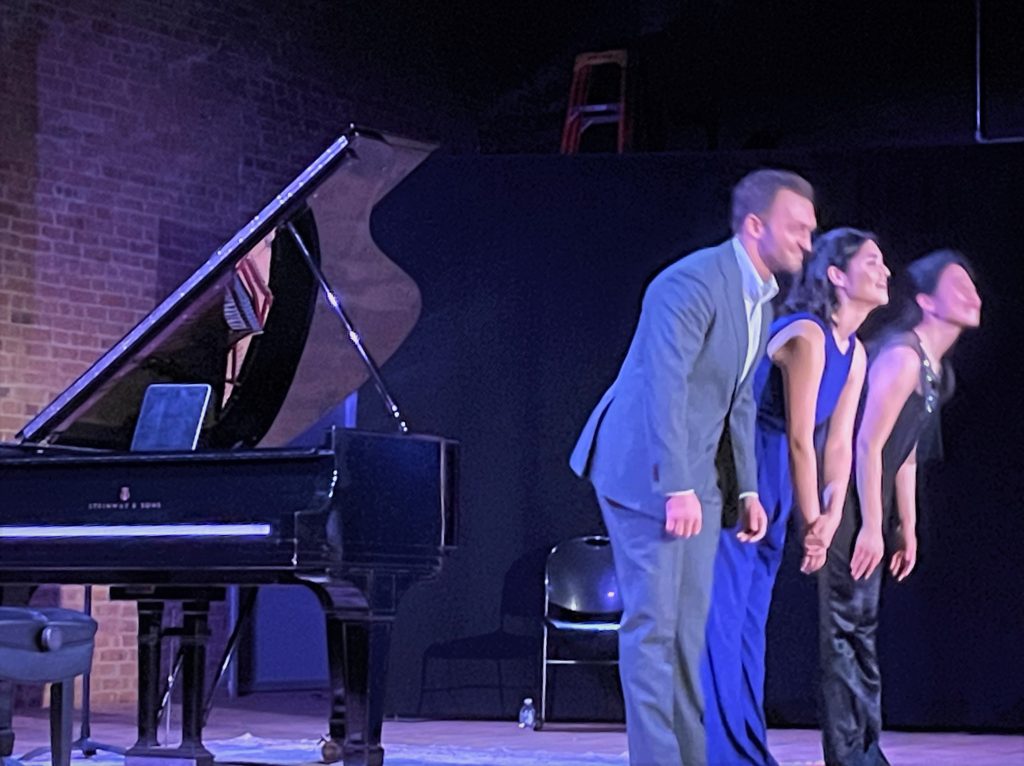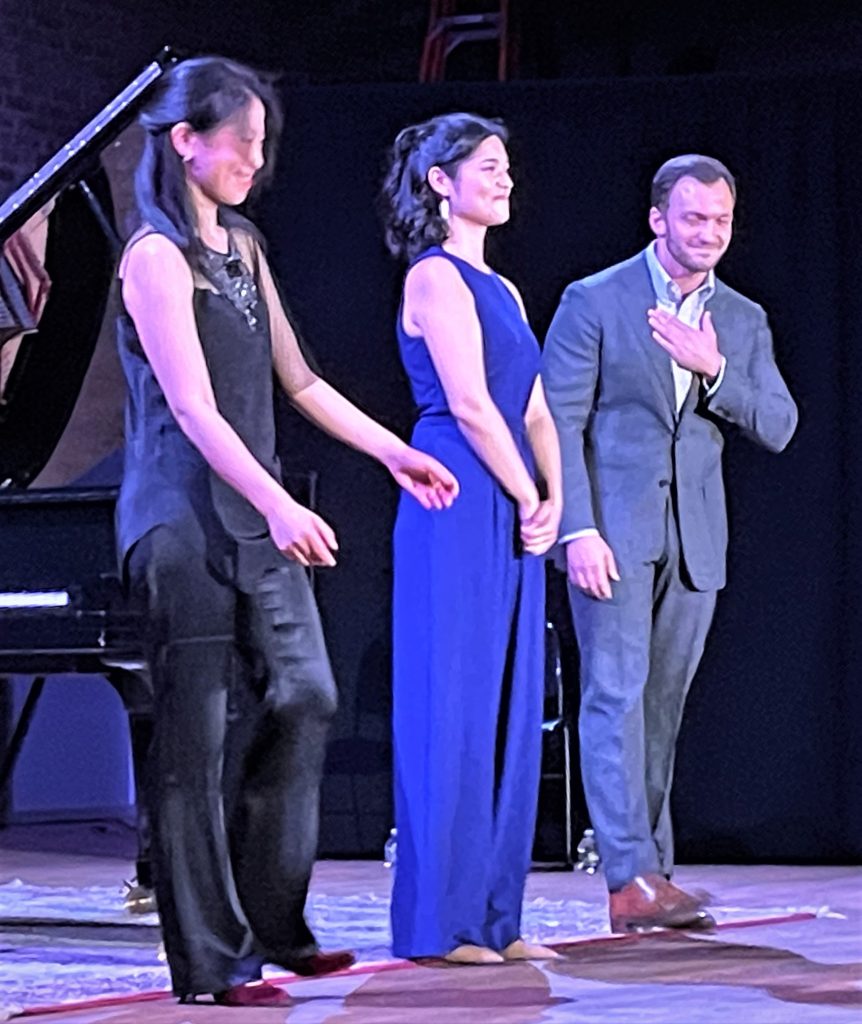
by Kevin T McEneaney
Last Friday evening at The Stissing Center in Pine Plains pianist Sophia Zhou accompanied Tenor Daniel McGrew and Soprano Katherine Lerner Lee in a sophisticated program with abundant variety. Sophia introduced the program by acclaiming the great European song tradition as one of the great musical achievements on this globe.
Yale graduate Daniel McGrew has a doctorate from the University of Michigan. I heard him sing last fall at St. James Place (Great Barrington, in the Clarion Concert series) and was over-delighted. Accompanied by Sophia, Daniel opened with An Die Ferne Geliebte (To the Distant Beloved). Daniel sang with great passion and nuance accompanied by mimetic gestures with powerful voice projection. Above all, he delivered that eloquent thrill of hearing his voice fall on one’s ears with dramatic edge as he melded despair, memory, and deep affection into the shape of a rose with a thorn during six long stanzas with accurate German diction.
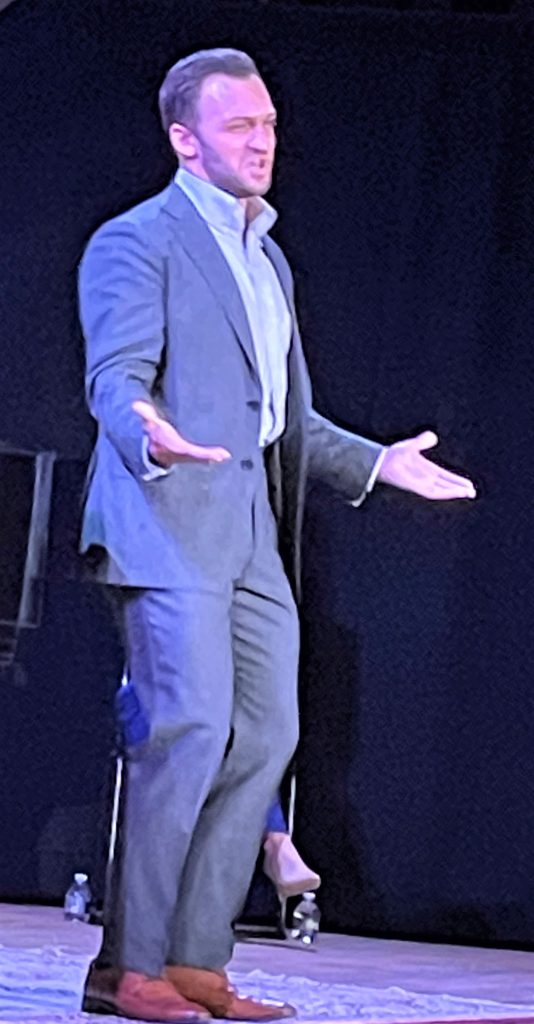
Katherine Lerner Lee then appeared to perform two short songs in French by Charles Gounod and Gabriel Fauré, the first a charming song of a man urging his beloved to rise with the sun and enjoy the splendor of Spring, and an autumnal lament for the passing of spring and summer which has more charm in French than any translation might offer. Katherine’s French was impeccable and her sentiment plangent without excess.
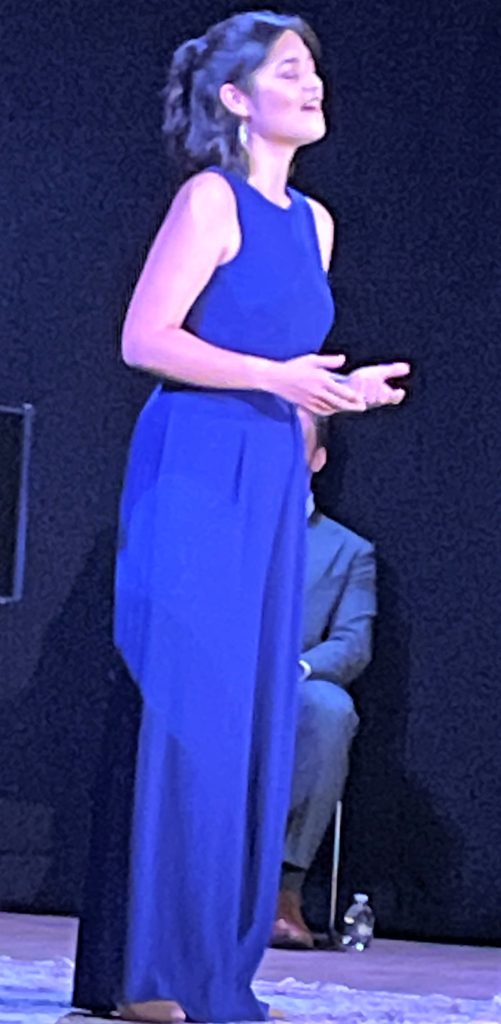
Daniel joined Katherine to perform (with Sophia) Benjamin Britten’s second (of five) Canticles, Abraham and Isaac (1953). Bearing the watermark of Henry Purcell’s influence, this is Britten’s most famous canticle. Bursting with tension it presents the agon in two voices and not three, inferring the voice of the Creator through the sublime quality of two voices, father and son, the latter acquiescing to father and the Creator. The employment of sequentially falling thirds enhances the triune aspect of the composition to enhance pathos. The composition is Britten’s most ingenious and complicated composition among his canticles and here it was performed with melded pathos between the divine aspect of the piano and two voices afflicted with excessive religious devotion.
After intermission, the second half of the concert offered a lighter cabaret style. Katherine sang four poems of Emily Dickinson arranged by Aaron Copland. These were all cheerful poems with pleasant settings, although not Emily at her best. My favorite was the shortest, “Heart! We will forget him!” which brimmed with that light irony, which makes her poetry so enchanting!
Sophia Zhou played “It’s A New World” by Harold Arlen and Ira Gershwin. To refresh my memory, I listened to a version on YouTube and was appalled by the performance, which was far too slow and sentimental. This made me realize that Sophia’s rendition was far superior in rhythm, timing, and resonance. By the time you read this, I hope I have erased from my memory the YouTube schlock. And yes, I would love to hear Sophia play the piece once more!
For comic relief, Daniel sang “Sara Lee: by Ebb and Kander. He sang with ebullient finesse and amusing theatrical gestures. Katherine sang “I Wish It So” by Marc Blitzstein. This number is commonly performed with exaggerated, thumping acoustics from the piano, and Broadway, sentimental pacing, yet here the song and accompaniment arrived with a tender intimacy that was memorable introspection.
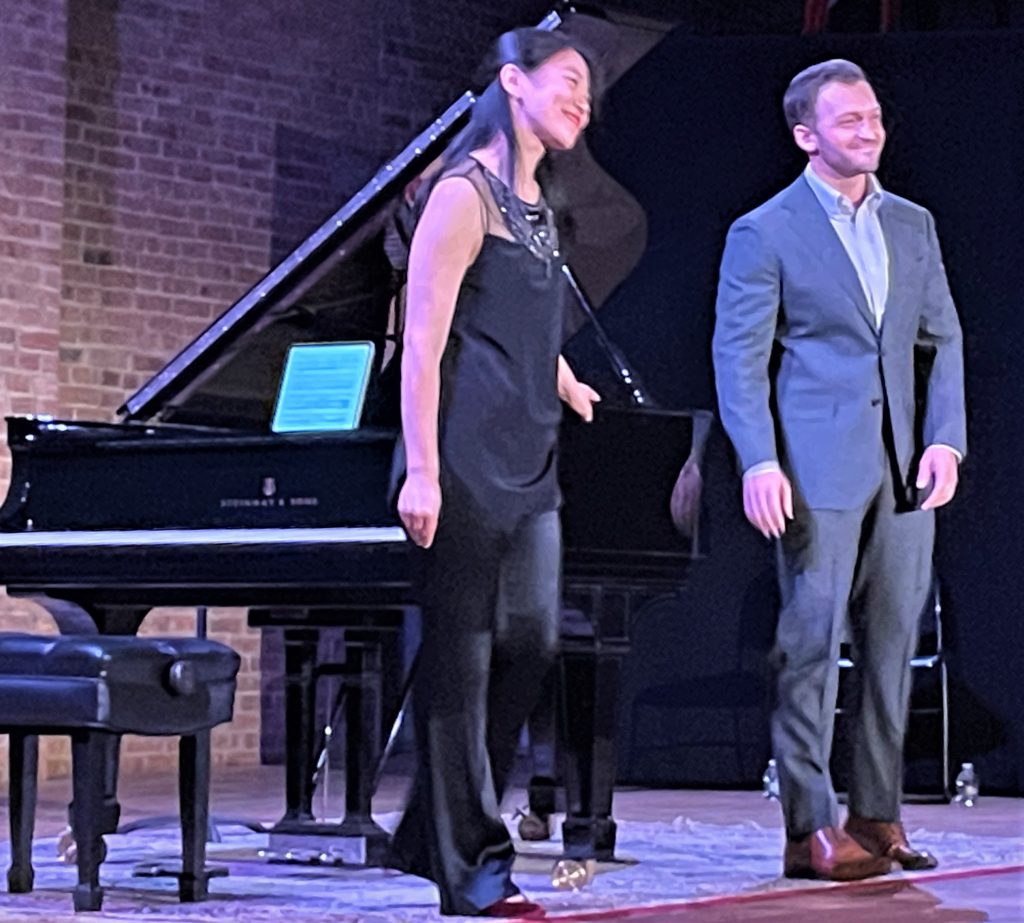
For the group Finale “Move On” by Stephen Sondheim was performed. This song is from his most accomplished musical, Sunday in the Park with George (1984). This female-male dialogue was performed with warm dramatic tension and intimacy that avoided glitzy Broadway declamation and stage bombast, here delivering a more personal and rural ambiance that concluded an evening of liquid pianism with voices that were by turns tinged with pathos, wonder, and generosity.
